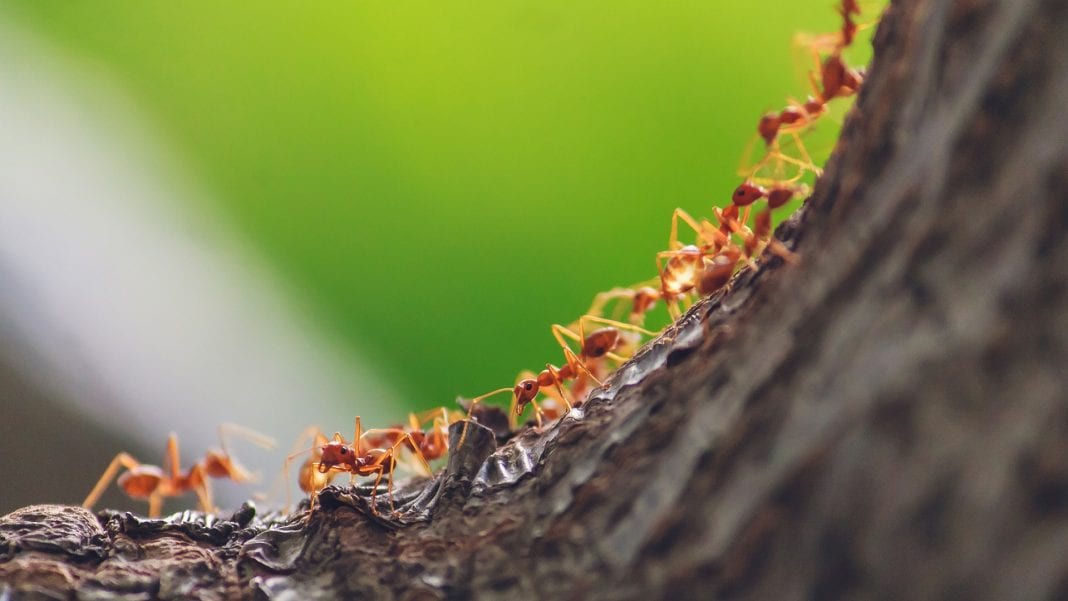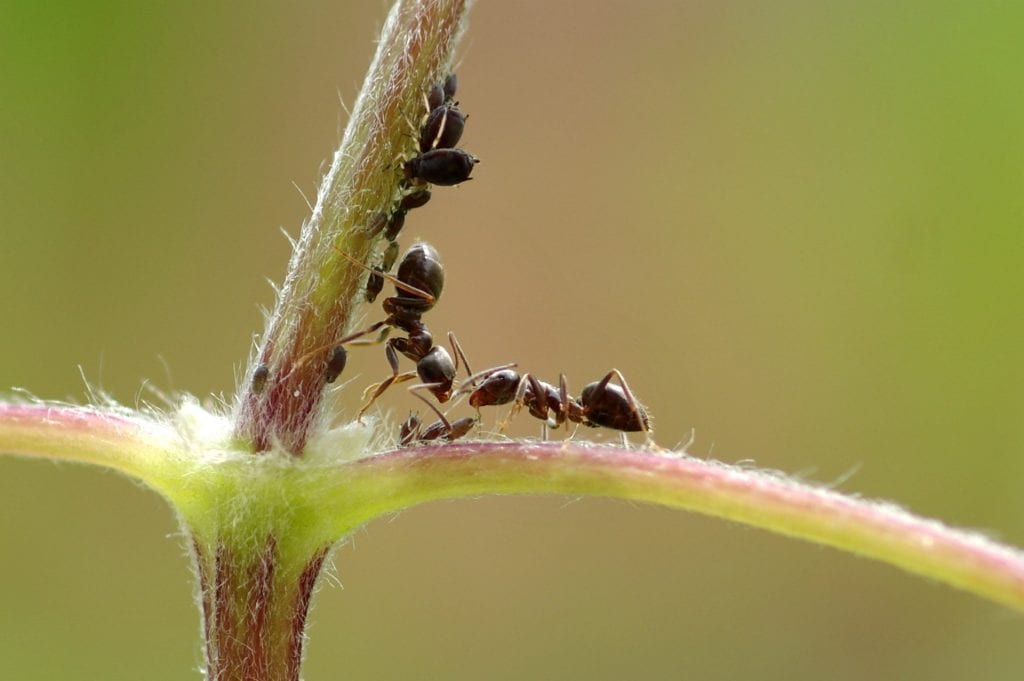
In the garden, ants are mainly seen as beneficial insects. They loosen the soil and some species feed on smaller pests. In the house or on the terrace, however, ants have a bad reputation. They are a nuisance when you are sitting comfortably with coffee and cake.
What about when the ants are on the tree. Can the ants cause any damage and what are the control methods?
Contents
Why does the ant infestation occur?
The ants move around your garden to find new food sources. In doing so, the small animals are attracted primarily to sweet foods. Once discovered, a large ant trail forms and more and more of the industrious workers begin to carry the food supplies to their own nests.
If the ants are on a tree, this has less to do with the fruit present or the fruit itself. Ants cannot process the fruit in any meaningful way, such as bringing it in small pieces to their own colony.
The fact that the ant feels comfortable on the tree has a completely different reason. The proximity of the ant to the tree is due to the aphid that is found on the fruit tree. Unlike the ant, the aphid is able to absorb the sap from the leaves.
However, the aphid is less interested in the sweet components of the sap. This is excreted in the form of honeydew and in turn serves as a food source for the ants.

Ants and aphids form a symbiotic relationship in the garden. Aphids feed on the sap of plants and excrete a sweet, sticky mass with the honeydew. This serves as a food source for ants, which provides some protection for the aphids. If aphids are in danger, they are carried into the nest by the ants. In this way, both sides benefit from the mutual proximity.
Which tree species are particularly affected?
Ants are therefore found on trees where aphids are also found. Without aphids, the ants would avoid the tree and prefer to look for the appropriate food in other regions.
Which trees are particularly affected by ant infestation depends primarily on the aphid. Trees that are particularly attractive to aphids are more frequently infested by the ants.
Aphids primarily target sweet leaves and flowers. Preferred trees include:
- Apple trees
- Cherry trees
- Pear trees
- Orange trees
Any tree with a sweet sap is attractive to aphids. Therefore, the ants are more often found on these varieties.
What damage should you expect?
Whether damage is caused by the ant or aphid depends on the hardiness and age of the tree. Ants are considered pests, but aphids are the greater threat to the tree.
Young trees
Trees that are only a few years old have even less robust roots and are more susceptible to pests. Aphids preferentially attack the leaves. Leaf curling may occur there.
Depending on the intensity of the aphid infestation, the next harvest is affected and fruit growth is inhibited. In extreme cases, the tree may even die. This is also the fault of the ants, which burrow under the tree and expose the roots. These can no longer absorb sufficient water, so that a young tree does not recover and dies.
Older trees

If the tree has already been standing for more than 10 years and enjoys the best health, it is much more resistant to any kind of pests. Death is hardly to be expected with these robust trees. If the small pests here in large numbers again expose the roots, this nevertheless contributes to weaker growth. Here, too, the next harvest could be less productive.
Do the ants attack the fruit?
If fruit is already forming, ants and aphids are hardly a threat to it. Ants can hardly penetrate the skin and prefer to feed on the honeydew.
Aphids feed mainly on the sap and avoid the fruit. After harvesting, you should still wash the fruit thoroughly so that no contamination remains.
Fighting ants on the tree
Ants and aphids prove to be pests on the tree. They do not attack the fruit directly, but via damage to the root system as well as the leaves, young trees can even die. Therefore, it is necessary that you react quickly and remove both aphids and ants from the tree.
Nettle decoction
Against aphids, nettle decoction is considered an effective home remedy. For this, chop up about 1 kilogram of the fresh nettles. For 1 kilogram of nettle, add about 10 liters of cold water. Pour the cold water over the nettles and let the liquid manure steep for about 1 week. Stirring daily, the decoction effectively repels aphids. Apply the decoction over the leaves of the tree to repel the pests.
Ant traps
Against the small creepy-crawlies you need to use different means than against the aphid. For this purpose, there are special ant traps, which are equipped with a poison. The poison does not act immediately, but with a time delay. The ants carry the agent into the nest, where it wipes out the entire colony.
Place the ant traps near the ant trails. Attractants will draw the small creepy crawlies in and fight them off after a few hours. Ant baits are designed to prevent pets or children from coming into contact with the poison.
Insecticides
In the event of a major infestation of aphids and ants, quick and effective action is required. For this purpose, various insecticides are available in specialized stores, which prove to be effective. However, you must keep in mind that with some means the fruits could be polluted. Use biological means in the first step, and only then resort to the chemical preparations.
Fighting the ants on the tree
If you want to fight the ants on the tree, you must first of all drive away the aphids. Without these pests, the ants would not come near the tree in the first place.
Use natural home remedies or insecticides to protect the tree. Fruits may become inedible as a result, but at least this way you have saved the tree.

